My New Site & Life Coaching Offerings
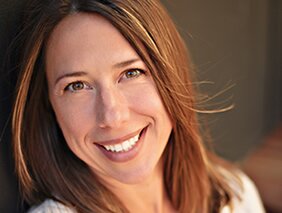 Hello Smart Girls!
Hello Smart Girls!
I’m so excited to show you what I’ve been up to for the past few months! Some of you know that a year ago, I began training with the fabulous Martha Beck to become a life coach so I could take my work with teen girls and young women to a whole new level. Today, almost one year to the day from when my training began, I’m happy to announce that I’m a certified Martha Beck Life Coach and I’ve just launched a new website and a bunch of special life coaching packages just for teens!
I’ve also written a brand new ebook, What Smart Girls Know: 10 Truths to Discovering You, which I’m offering for FREE to people who sign up for my new newsletter over at debbiereber.com. This book is a passion project I’ve had in my mind for years, but never published with a traditional publisher. I’m thrilled to be able to make it available to you now…gotta love technology!
Oh, and if you’re interested in life coaching, here some of the one-on-one coaching offerings I’ve put together specifically for teens and 20-somethings. You can get all the details on my new Coaching Page:
SELF-DISCOVERY 101
In a world where teens are bombarded with mixed, and often harmful, media messages, face ongoing pressure to be a “perfect good girl,” and are stuck somewhere between their big dreams and their current reality, it can be challenging to figure out what sparks their passion, let alone where they want it to take them in their lives. This eight-session one-on-one coaching program is aimed helping girls tune into what makes them uniquely them, identify their values and passions, understand the limiting beliefs that get in their way, and build a personal toolbox for moving forward in life in an authentic, purposeful, and powerful way. For motivated teen girls ages 13 – 19.
SIX-WEEK STRESS BUSTER
Today’s overscheduled, overprogrammed teens are dealing with unprecedented stress levels in their quest to be and do it all. This six-week one-on-one coaching program offers motivated teen girls ages 13-19 simple strategies for juggling it all, managing their stress, and creating more balance in their lives.
THE GOAL GETTER
Today’s teens are big dreamers, and as a collective, they’ve been told their whole life that they can do and be anything they can imagine. But many are missing the concrete strategies and skills they need to shift from imagine to action. This six-week one-on-one coaching program helps motivated teen girls ages 13-19 working toward a specific goal or goals imagine the possibilities, tackle fear and procrastination, create a foolproof plan of action, and set achievable goals.
ORGANIZE YOUR LIFE
For the busy teen juggling schoolwork, extracurriculars, and other obligations, a little organization can go a long way. This six-week one-on-one coaching program helps teens ages 13-19 understand the benefits of organizing all different aspects of their lives and give them solid organizational strategies and tools that will help them prioritize, save time, reduce the chaos in their life, and ultimately create a less-stressed life!
SENIOR YEAR SEND-OFF
Senior year of high school is an exciting, interesting, and often challenging time as big transitions are looming and teens find themselves at the intersection of their familiar high school existence and the unknown of what comes next. This six-week one-on-one coaching program helps motivated, college-bound high school senior girls hone in on their personal values, discover their voice, learn how to tackle fear, and create a strong foundation for personal self-care.
PROJECT YOU
Project You is a twelve-week coaching program for 20-somethings who are feeling stuck, trapped, and limited by their current reality. This intensive program helps 20-somethings hone in on their limiting beliefs, rewrite their personal story, reconnect with their purpose, imagine their ideal outcome, and gain the strategies and tools they need to make it happen.
* * * * *
With the start of my new site, I’ve also launched a new blog which will feature less newsy news and more insight and reflections for young women. Therefore, I won’t be updating Smart Girls Know any longer. I will, however, keep this site up so you’ll continue to have access to the past 4 years worth of content, interviews, book reviews, affirmations, and more. Thanks so much for being a part of the Smart Girls Know community, and I hope you’ll join me over at debbiereber.com!
XOXO Debbie

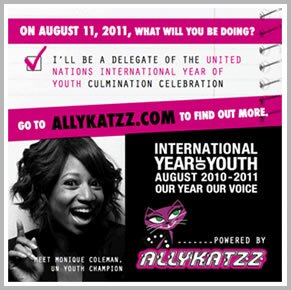
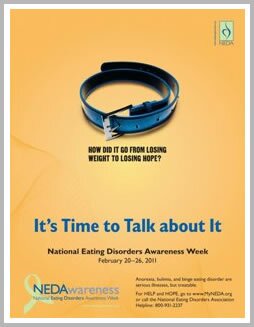 This week is
This week is 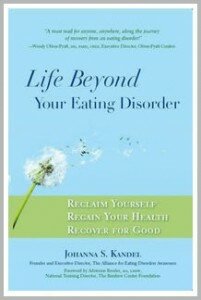 If you or someone you know struggles with an eating disorder, please check out my friend and fellow member of the Confidence Community (TM) Johanna Kandel’s book, Johanna struggled with her eating disorder for ten years before finally getting help. She founded the
If you or someone you know struggles with an eating disorder, please check out my friend and fellow member of the Confidence Community (TM) Johanna Kandel’s book, Johanna struggled with her eating disorder for ten years before finally getting help. She founded the  Hello Smart Girls,
Hello Smart Girls,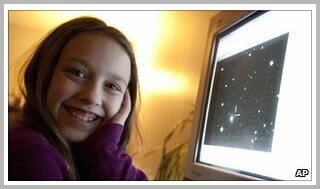 I’m sorry, but how cool is this? Ten-year-old Kathryn Gray from Canada has just become a world-renowned astronomer. How? She became the youngest person ever to discover an exploding star, otherwise known as a supernova.
I’m sorry, but how cool is this? Ten-year-old Kathryn Gray from Canada has just become a world-renowned astronomer. How? She became the youngest person ever to discover an exploding star, otherwise known as a supernova.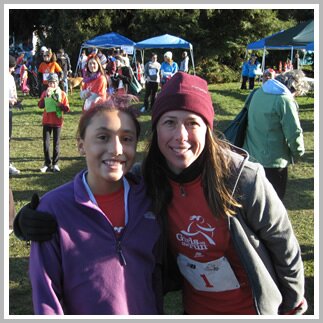 To do my part for today’s
To do my part for today’s 
